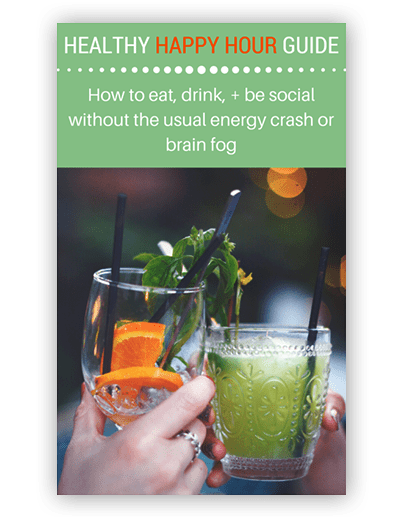If you’re planning your next diet and are looking to lose weight to regain your health, you aren’t alone.
In my nutrition practice I often hear potential clients say something like this: “I’ve tried a bunch of diets and they haven’t worked. Can you help me find the right one so I can drop these last 10 pounds?”
The desire to lose weight is totally understandable.
We’ve been conditioned to think that all we need to do is workout more and eat less, and we’ll be healthy and have the body of our dreams.
And we’re taught that the “body of your dreams” is tiny. Or if you identify as male, muscular and chiseled.
We see people in advertisements looking thin and happy, telling us that they used to be fat and miserable (because if you’re fat, you must be miserable, right?), but once they started a diet consisting of organic steam and 4-hour daily workouts, all the weight magically melted off and now they’re living the skinny life of their dreams.
Is this actually achievable?
“Yes,” an abnormally good looking (and tan) person in an advertisement will tell you, but how do you know?
Do diets really work? Turns out the answer is: well, not really.
This can be hard for some people to hear, but it’s true.
Any number of diets may work in the beginning, allowing you to lose 5-10% of your weight, but the weight usually comes back.
In fact, most people end up gaining more weight than they originally lost within 4 or 5 years.
“Several studies indicate that dieting is actually a consistent predictor of future weight gain,” said Janet Tomiyama, a UCLA graduate student of psychology and co-author of the study. One study found that both men and women who participated in formal weight-loss programs gained significantly more weight over a two-year period than those who had not participated in a weight-loss program, she said.”
David Garner, Ph. D, and Susan Wooley, Ph. D, wrote in Clinical Psychology Review: "There are two indisputable facts regarding dietary treatment of obesity. The first is that virtually all programs appear to be able to demonstrate moderate success in promoting at least some short-term weight loss. The second is that there is virtually no evidence that clinically significant weight loss can be maintained over the long-term by the vast majority of people.”
Why is this? A bunch of reasons, actually.
For one, diets are usually pretty restrictive.
And when your body thinks it’s starving, which it does when you’re not eating enough, it will hold on to every calorie you eat for dear life, because it’s not sure when it’ll get fed again.
So the more you diet and/or the less you eat, the more your body will want to hold onto weight.
And it’s your body’s natural biological response to starvation to binge and start eating a lot of food.
So it’s really not a huge surprise that when you “fall off the wagon” (which you will, because willpower is a finite resource), you eat everything that's not nailed down.
And let’s be honest, dieting is stressful! Both mentally and physically. And when stress hormones are elevated for a prolonged period of time, your body can hold on to weight, especially in the midsection (it’s storing it there for the future famine or hardship it thinks is coming).
Also, long-term caloric deprivation (aka dieting), in a way that’s not completely clear in the scientific literature, acts as a signal for the body to decrease its metabolic rate. So the fewer calories you consume, the fewer calories your body burns.
So biology and physiology are really working against you here.
Sorry if this is a bummer.
But the good news is that to be truly healthy you don’t need an impossible diet or to reach a specific number on the scale.
Health and weight aren’t actually the same thing (more on that here), and you don’t need to be skinny to be truly healthy. Healthy people come in all shapes and sizes, not just the cookie cutter ones you see in ads.
So now what? The way to truly be healthy is not as complicated as it’s often made to seem.
Here are a few easy steps to try out instead of jumping into another fad diet:
- Eat mostly whole foods, things you can recognize with your eye that came from the ground or a tree.
- Be generous with the veggie intake, especially leafy greens. Don’t worry, they don’t have to be just bland steamed vegetables. Cook and season them in a way that you find delicious and is pleasurable to eat, not a punishment.
- Learn how to listen to your body - when it’s hungry, when it’s full, and what makes it feel good. Make adjustments where you need.
- Let go of perfection. Some days you’ll eat veggies. Some days you’ll eat chocolate. Both days are good days and your worth as a person isn’t determined by what you eat.
- Realize that food is only one aspect of health. Our relationship with food, stress, sleep, emotional wellbeing, and daily movement (not always the gym) all play big roles as well.


Leave a comment!